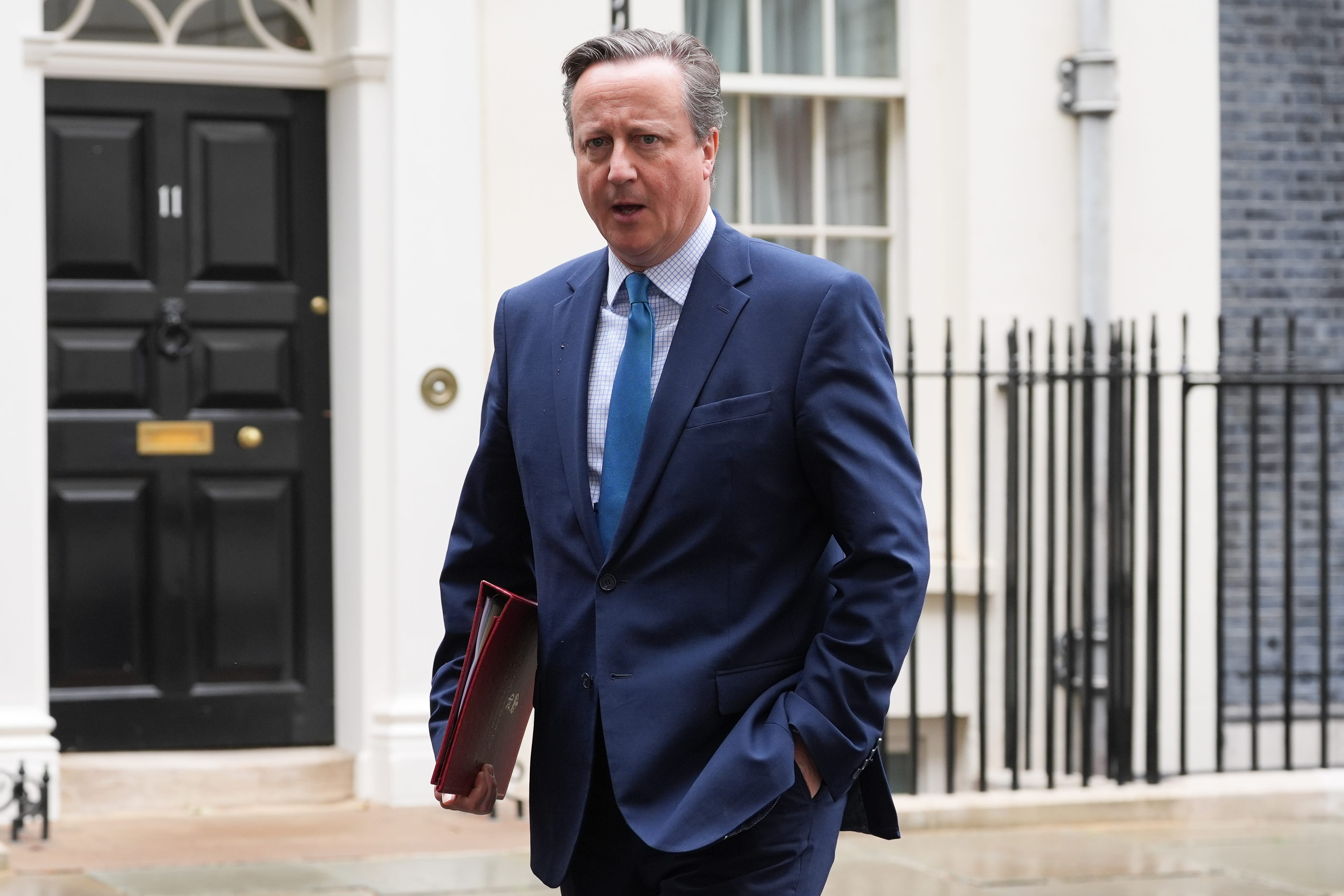A cross-party group of 50 influential politicians have urged foreign secretary Lord Cameron to end the UK’s “punitive and unfair ban” on direct flights to the Turkish Republic of Northern Cyprus (TRNC).
The letter was sent to the foreign secretary as last ditch effort before Parliament is dissolved for the general election but had the support of Labour’s Lord Straw and Tory Sir Iain Duncan Smith among other.
The move comes as Cyprus’ divided island is set to mark 50 years since the crisis which saw them split into rival parts and is still to be resolved.
While the move is too late to influence the current government policy of not allowing flights or recognising the elected government in the TRNC, MPs and peers hope that it will be a prompt for whoever wins the next election.

As Labour’s foreign secretary Lord Straw oversaw the failed talks on the Anan Plan in 2004 which would have reunited the island but failed despite the north voting in favour because the Greek Cypriots in the south rejected the proposals in a referendum.
He has spoken of his regret of the UK allowing Cyprus into the EU a week later when the Annan Plan had been a condition of entry.
The parliamentarians wrote to Lord Cameron, the Foreign Secretary, raising serious concerns over the treatment of the TRNC and calling for “the commencement of direct flights from the United Kingdom to Ercan International Airport – the largest airport on the island of Cyprus”.
They want the Foreign Secretary to end “one of the most restrictive policies of any country in Europe when it comes to air travel to Ercan”.

They point to the UK allowing flights to non-UN member states such as Kosovo, and to countries that it doesn’t recognise such as Taiwan. The question is “why not to Northern Cyprus?”
They claim that air travel to the TRNC is not a risk and there is no history of poor safety. They claim that Ercan Airport abides by international aviation security standards, and safely hosts hundreds of thousands of passengers each year.
But the parliamentarians from across parties have also warned that if the UK continues to fail to engage with the TRNC, it will “risk letting countries such as Russia and Iran do so instead – fundamentally challenging the UK’s strategic foothold in the eastern Mediterranean.”
The letter follows a call for action from the 300,000 strong Turkish Cypriot diaspora comes as a new general election has been announced. Turkish Cypriots, their friends and families, will also be putting pressure on both the Government and other major parties to commit to ending this unjust situation.
Chet Ramadan, founder of Freedom and Fairness for Northern Cyprus, said: “It is time that the UK ends their regressive ban on flights to the TRNC. This is something that was promised 20 years ago and has yet to be fulfilled.
“300,000 Turkish Cypriots live in the UK, and 15,000 British expats live in Northern Cyprus. The onerous and unnecessary flight rules only create a cruel burden for those wishing to visit family members or go on holiday.
“UK parties must commit to allowing direct flights to restart and we will repeat this call to whoever forms the next government.”
Such a move though will fiercely be resisted by Cyprus which is the recognised state and could threaten repurcussions with the UK’s relationship with the EU.
The events five decades ago are still angrily disputed with Turkish Cypriots accusing the Greek Cypriots of starting the conflict with a military coup which aimed to unite Cyprus with Greece. This followed with what has been described as an attempt at “ethnic cleansing” with attacks on the Turkish Cypriot communities.
Both sides had heavy losses in the conflict which followed with Greek Cypriots accusing Turkey of invasion and subsequent occupation of its territory in the north. The authorities in the TRNC insist that the Turks intervened to prevent Turkish Cypriots from being massacred and have remained as a protection force.
Numerous attempts to bring the island, which gained independence from Britain in 1960, back together in a federal system have failed. Turkey’s President Recep Erdogan now supports the TRNC demand for a two state solution, which is opposed by Cyprus, the UK and EU.




















